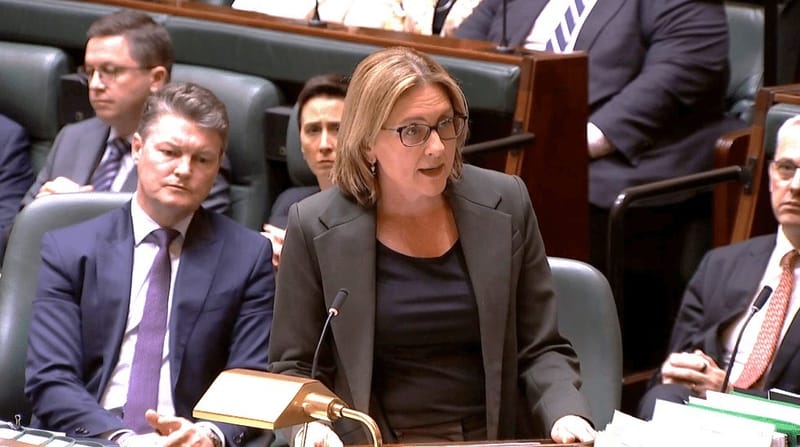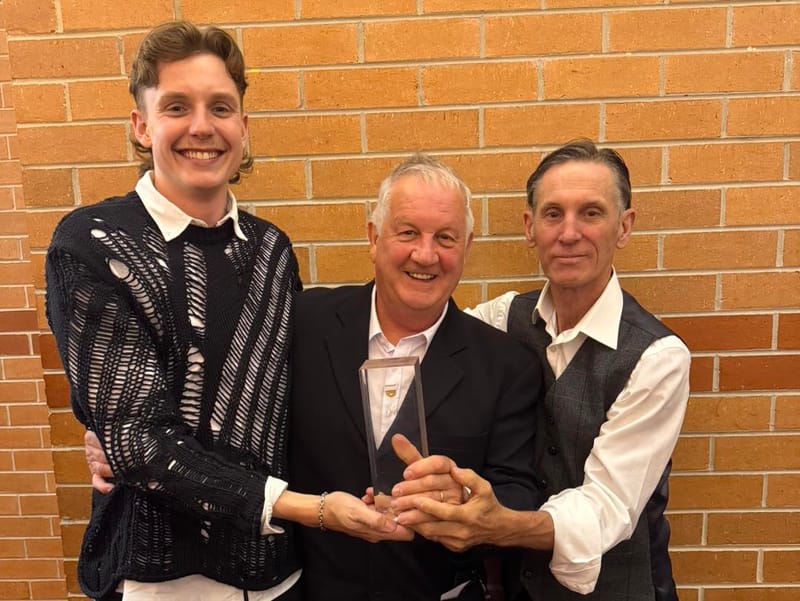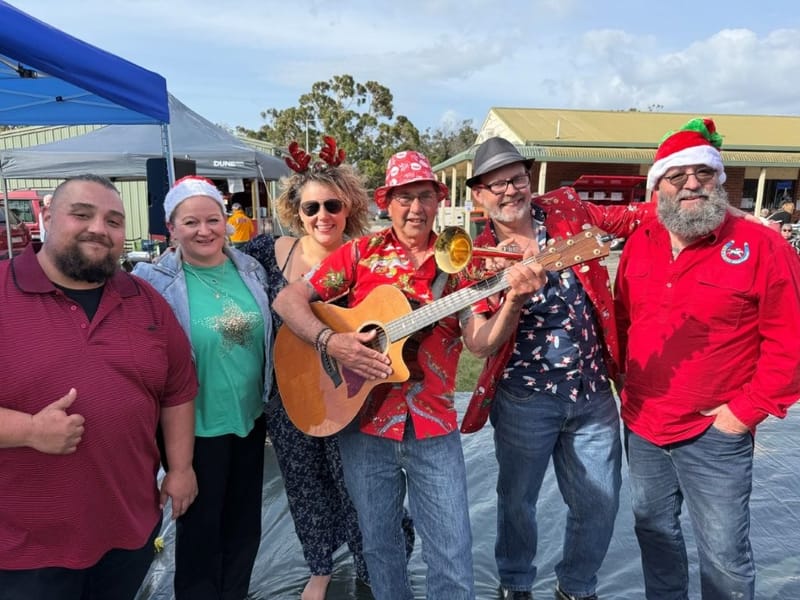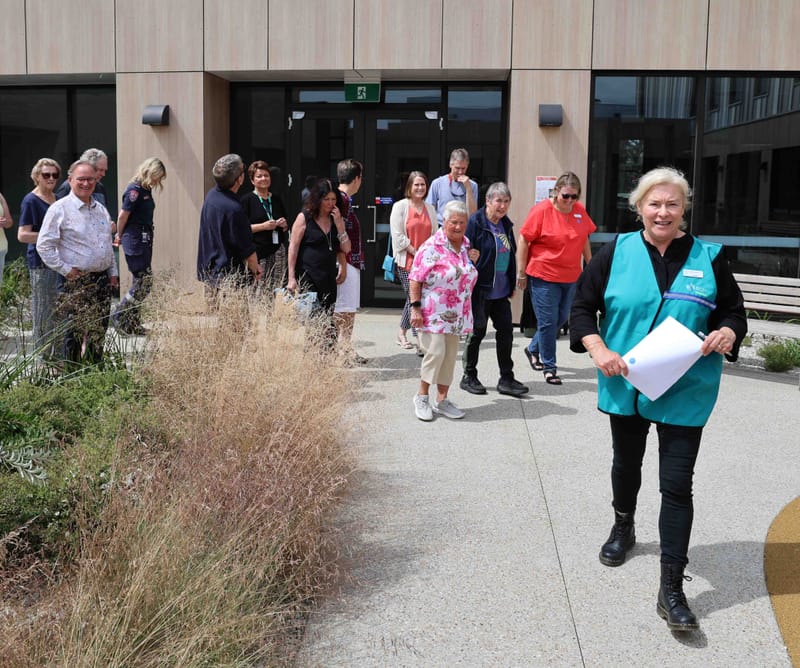Impact of road trauma felt far and wide
The following article discusses themes that may be sensitive to some readers. TWO HUNDRED and forty lives were lost on Victorian roads as of last week. Two hundred and forty lives cut short, 240 people took their last breath, 240 homes received...
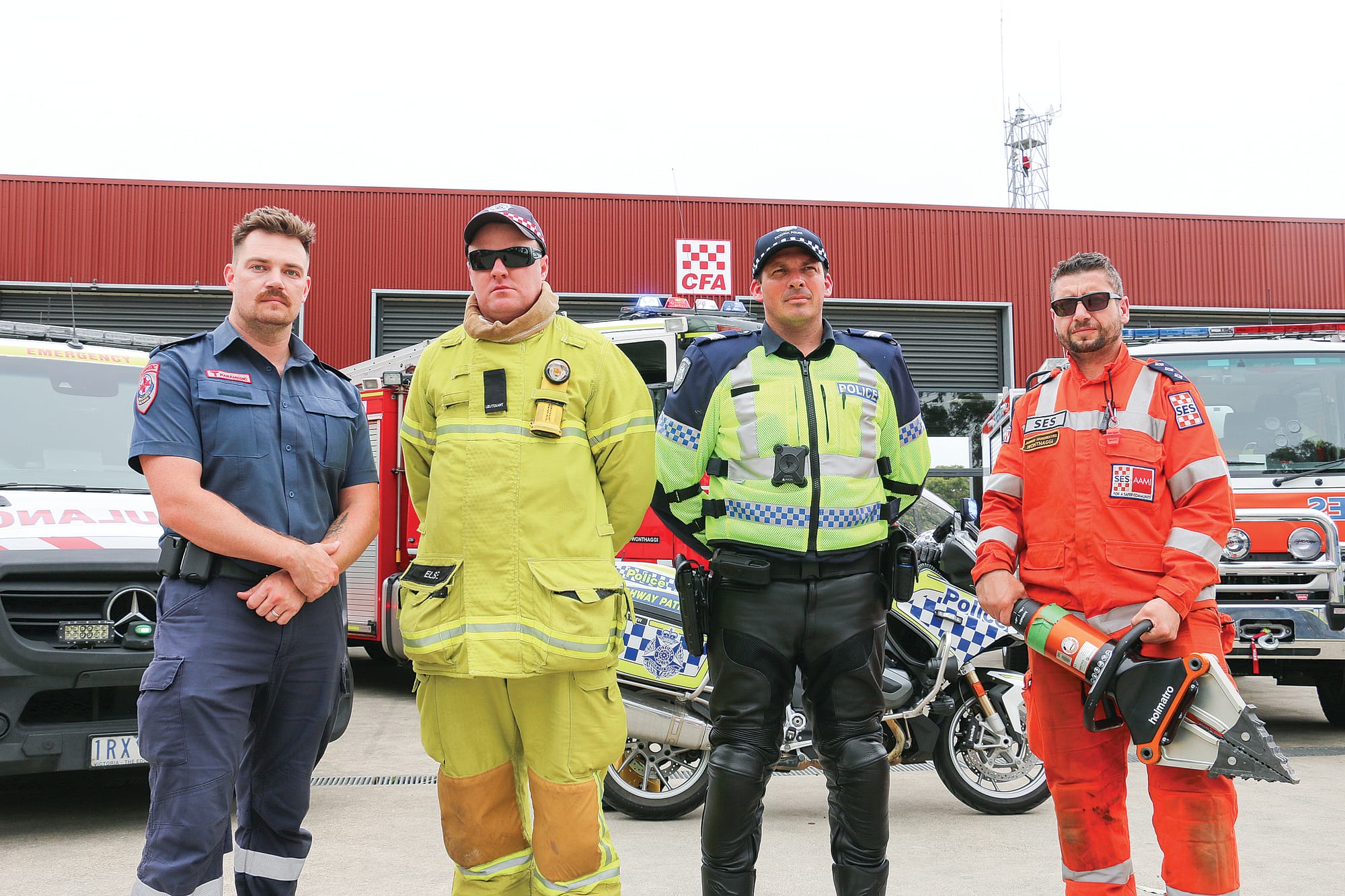
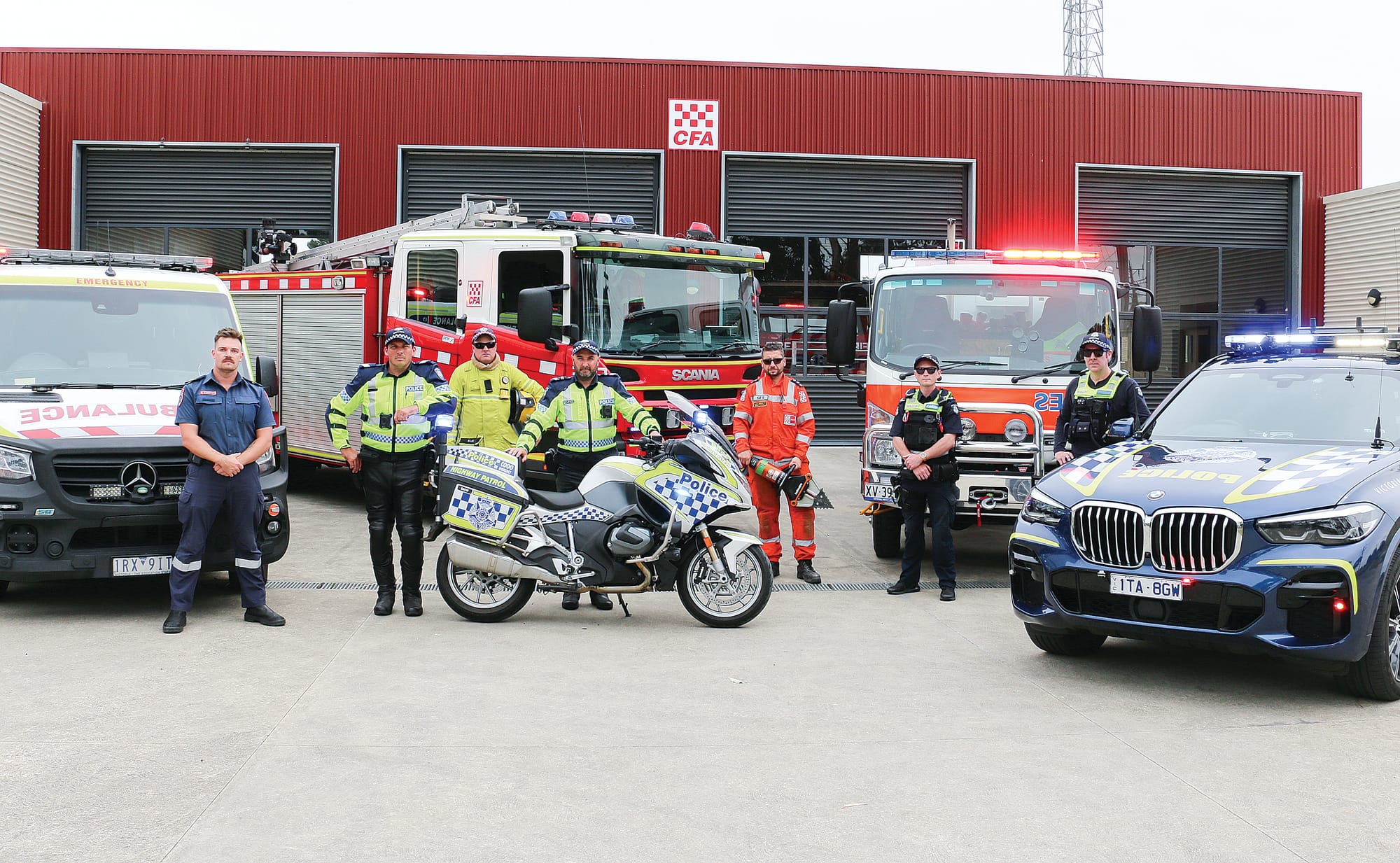
The following article discusses themes that may be sensitive to some readers.
TWO HUNDRED and forty lives were lost on Victorian roads as of last week.
Two hundred and forty lives cut short, 240 people took their last breath, 240 homes received a knock at the door, and 240 families will never be the same again.
That is the immediate impact of road trauma.
Before you consider a risky overtaking manoeuvre, cut a corner short or pick up your phone to check that message, remember it could be the last breath you take.
Ambulance Victoria and Victoria Police may be manned emergency services, but local SES and CFA crews are made up of volunteers.
If you are driving longer distances or feel fatigue set in, pull over – have a nap, stretch your legs, grab a bite to eat or have a (non-alcoholic) drink. Ask a family member or friend if they can take over driving.
Bass Coast Highway Patrol, Acting Sergeant (AS) Clinton Goff
“The biggest thing for this time of year, outside fatalities, are the serious injury collisions,” Acting Sergeant Goff explained.
“It is the serious injury collisions that ruin families, destroy families, because someone may be injured and require care for the next 12 months or a lifetime. There are serious brain injuries, permanent disabilities, it’s a lifetime commitment for the actual family to deal with; it is the extended family that no-one seems to think of.”
With 10 years Victoria Police experience under his belt, and seven specifically in Highway, there is little AS Goff has not seen.
“You may be wanting to show off to a friend you've got in the car or girlfriend or girl you’re passing in the street, but the bigger picture is, if something happens to you, or your passenger, you've got to live with that for the rest of your life and your family has to live with that for the rest of their lives.
“If you kill or maim someone you must see that and deal with that for life. Alternatively, if something happens to you, then it's your loved ones that have to deal with it for the rest of their lives; they suffer because of your actions.”
With marked, unmarked and police motorcycle vehicles on the roads daily and additional Highway Patrol members from Latrobe and Baw Baw regions in Bass Coast and South Gippsland not tolerating unsafe behaviour, due to the increase of serious injury collisions and fatal accidents, road users have been warned.
Wonthaggi Fire Brigade, 2nd Lieutenant Kevin Else
A member of Wonthaggi Fire Brigade near on 20 years and rescue accredited, there is not much the Lieutenant hasn’t seen, from fatal house fires to horrific car accidents to rescuing kittens stuck in vehicles, he is also one of the reasons members of our community are alive today.
And he is not alone, teams of fire brigade members across Gippsland can recount similar experiences.
“Very rarely will you have a complete picture of what is in front of you going to an accident,” Lieutenant Else explained.
“On arrival we may face a car wrapped around a tree, a young child trapped, it could be an individual who has been thrown from a car due to the impact, it could be a shattered pelvis from being dragged down the road as the vehicle has flipped.
“It may be a straightforward extraction with SES, or it could be complicated, and we could be performing CPR inside the vehicle.
“You could have people conscious and asking where their kids are, or you might be reviving them for the seventh time.
“Each scene is unique; each scenario is different, and each outcome is impossible to predict – we do our absolute best and often those greatest affected isn’t the one behind the wheel.
“It is a miracle some individuals survive. In some cases, the injuries will be so severe it seems survival is impossible, yet they’re walking down the street a month later, in others the injuries will appear less and yet that person passes away or spends months and years in rehabilitation.”
Lieutenant Else also highlighted the importance of vehicles safely giving way to emergency services.
“Slow down and pull to the left if you see an emergency vehicle – trucks cannot get past if you continue at speed. Do not slam on your breaks or pull off the road in a dangerous manner – we have had to stop at new accidents people have caused and that prevents us from attending the original incident.
“And do not prevent us from getting to a scene. We face all kinds of challenges people place in our way when it’s not their life at risk – imagine if it was your partner or child, your parents, your best friend we were going to, or even yourself.”
VICSES, Instructor and Wonthaggi Unit Controller (UC), Jarrod Hargreaves
Wonthaggi may be fortunate to have multiple individuals specialised in road rescue, in particular Unit Controller Jarrod who is also an accredited SME road rescue instructor, however, that doesn’t provide lead way for irresponsible behaviour.
“It’s such a high risk and high probability of happening we take extra measures over this period – our members don’t really get a break in that sense,” UC Hargreaves said.
“We look at where our members will be on Christmas Day (for example) and position the trucks with them – they take the truck to Christmas lunch, for a faster and better response for people who need our help.”
A straight shooter, UC Hargreaves message is blunt – they would prefer to be doing other things than responding to a serious injury or fatal collision.
“The bystanders and other people involved who are watching this whole event unfold, it could be a loved one, that is where the trauma is. Often the person involved is not aware of anything outside what they’re experiencing.
“The onlookers and first people who arrive and try to help put themselves in harm’s way – climbing through car windows with glass and jagged metal everywhere until we get there – that’s a big risk.”
And whilst emergency services do their absolute best, other incidences can delay response times.
“The demand on emergency services means resources are stretched to capacity at the moment – you cannot put your faith in the system. We are there to pick up the pieces, but we do not choose what pieces they are.
“And we’re not just sitting there waiting for the call. We were in the middle of a tree down response the other day and we got a call to a car rollover.
“Behave yourselves – we want to spend the holidays with our families too.”
Ambulance Victoria, Acting Team Manager (TM) Wonthaggi Branch Matthew Brain
“Rural roads, especially over Christmas and the holiday season, represent a disproportionate amount of road trauma, not only deaths, but morbidity as well, including severe hospitalisations and permanent disability,” Acting Team Manager Brain stated.
“A lot is to do with not only the driver, but the passengers and bystanders, even pedestrians, people that are driving home from school, people that are driving their families around become inadvertently entangled in potentially grave circumstances. It's quite a traumatising experience for everybody – especially if you're innocently driving along, and someone who's frankly reckless or impaired in any way has caused damage to you when you've been an innocent victim as a result.”
Spending most of his summers growing up down here and having resided in the region for the last six years, Acting TM Brain is frustrated by the sheer lack of care especially when high speed road accidents are 100 per cent preventable.
“It’s the time of the year when people get fatigued, a lot of people are stressed, a lot of people are rushing from place to place – they might be speeding, they might be impaired from a number of different things including phones, fatigue, stress, alcohol, drugs and prescription medication.
“A small lapse in judgement can ruin lives – out here everything is far worse you could hit a truck, it could be head on, high speed, further exacerbating trauma, there are a lot of other factors that make our roads a lot more serious and devastating.”
Bystanders are also reminded to be sensitive to the scene in front of them – consider if you really need to pull the camera or video out to film, especially when emergency services are working on a patient, and do not give attitude if a member of any emergency services asks you to put your recording device away.


